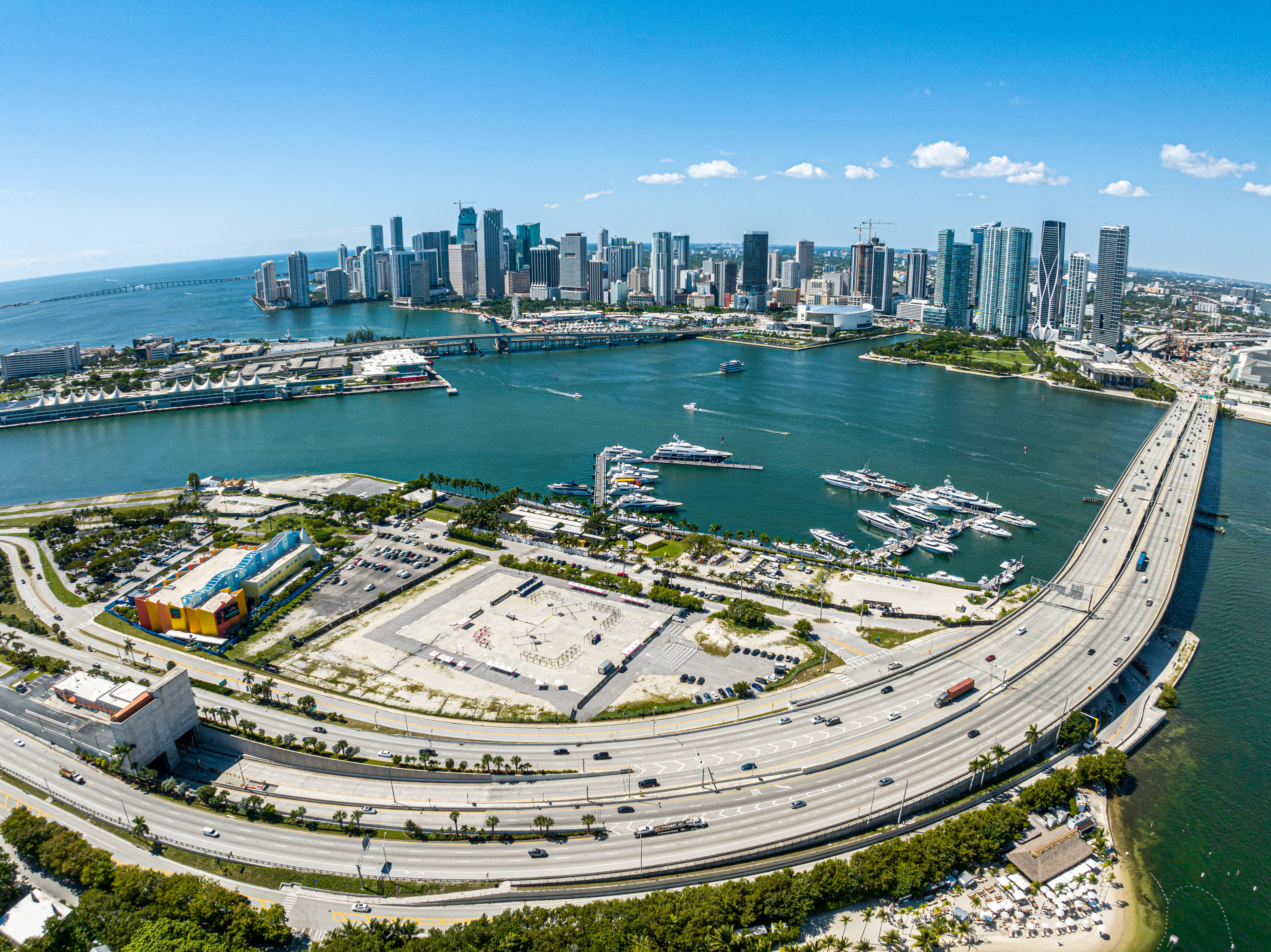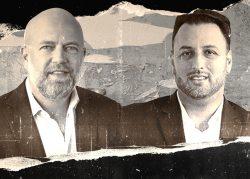Daniel Lebensohn is familiar with navigating complex projects and market challenges. BH3 Management, the company he leads with his partner, Greg Freedman, got its start in 2009 when it began buying non-performing loans from banks.
One of their first deals was with Michael Dell’s MSD Capital in Miami Beach. Lebensohn was listening in remotely while Freedman and their former partner, Charles Phelan, met with MSD to view its presentation in person on a shared PC. This was before Zoom.
“One of the first structure proposals that they sent was over the top,” Lebensohn said of MSD. “I wrote to [Freedman] on his ICQ. I said, ‘What the f*ck do these guys think we are, baggage handlers?’ Well, he started blowing up my phone. They could see my screen. Long story short, we got the deal done on better terms, thankfully.”
While many might think BH3 stands for the Hebrew phrase Baruch Hashem, which means “blessed is God,” it’s really “baggage handlers times three,” for the original three partners.
Since then, the asset management, investment and development firm has acquired, managed or developed more than $2 billion in loans and properties — maintaining a relationship with MSD. Lebensohn is co-CEO, along with Freedman.
“It’s symbolic of what we’re about and what we’re willing to do. At the time, we had a tight budget. We watered the bamboo sticks because we couldn’t afford a landscaper,” Lebensohn said of the first deal with MSD. “We try to leave our egos at the door. And we also try to have fun and work with people that we really enjoy working with.”
In South Florida, BH3 co-developed Privé Island Residences, a pair of 16-story buildings with 74 luxury condos in Aventura. The development faced significant opposition, including lawsuits that sought to block the project, and a husband and wife who were arrested for allegedly trying to physically stop construction of the project. It was completed in 2017.
BH3’s current projects include the planned mixed-use development of a nearly 11-acre site on Miami’s Watson Island with the Motwani family’s Merrimac Ventures; as well as the planned two-tower multifamily project at 300 Andrews Avenue in Fort Lauderdale’s Flagler Village with the Traina Companies.

Through an opportunistic credit fund, BH3 this summer provided a $190 million refinancing to developer Michael Shvo, Deutsche Finance and a group of German institutional pension funds for the redevelopment of the Raleigh in Miami Beach.
Despite the Fed’s plan to cut rates this year, challenges remain for developers looking for financing. Lebensohn spoke with The Real Deal about his outlook for 2024 and BH3’s projects.
What effects will the Fed’s planned rate cuts have on the market?
There’s a psychological effect that triggers more activity.
We’re creatures of habit [who] want to hear good news. It’s been a bumpy, rough road in the capital markets, combined with inflation, soaring insurance costs, construction costs, a myriad and confluence of events that have been basically punching commercial real estate investment in the face.
The news of rate cuts coming down the pike already brings promise and hope to entrepreneurs in the space. But at the end of the day, business is tied to cost of capital as much as it’s tied to any other expense. While commercial real estate has historically proven to be an excellent inflation hedge, you still have to be able to sustain and hold the properties. What’s prevalent in the market today is that a lot of sound developments by competent developers are struggling with filling the equity gap because they cannot recapitalize their properties that they’ve worked so hard on, because rates not only went up, but they went up at a rate that I believe is historically unparalleled.
Do you think many projects will fail?
That’s project dependent. How much leverage did someone take when everything was flush, which has a direct correlation with what happens when things are foul or headed in a foul direction? If someone took an aggressive construction loan and then had some escalating costs, and then maybe threw some mezzanine financing on there, it really depends. What is the true loan to cost?
It depends on where the equity actually originated from. How long does it endure? And does it have replenishment reserves?
This is not the great financial crisis. I’m not saying that things couldn’t theoretically get worse. But it’s very asset specific. So where we wouldn’t wholly invest in [is] New York real estate today, and a lot of people won’t. It’s a four letter word. They may not even go to New York. We say ‘No, you have to look at this specific asset.’
What do you expect for 2024?
I do think that there are silver linings in the marketplace. Development has been curtailed as a result of these things. I think that general contractors and subs don’t have as much pipeline as they may have anticipated. So there’s more capacity. They’re more anxious to take on new projects, and maybe become more flexible in cost and pricing those projects.
Are you looking for deals?
We’re not a company that is looking to have dozens of out-of-the-ground primary projects, because we’re counter-cyclical. We have a credit business that buys non-performing loans that in the current environment is taking advantage of very attractive spreads on construction and bridge loans.
Last year, BH3 and Merrimac Ventures bought the leasehold interest from Flagstone Property Group for the long-stalled development site on Watson Island, where a site plan is approved for hotel, retail, residential and public space. Miami voters approved the deal with the former developer in 2001. What’s the status?
That’s a project that is going through the motions of preconstruction. We’re capitalized to pursue that and create value on that land while the market works out its own issues. We have financing in place [for Watson Island].
How do you create value in the meantime?
By doing infrastructure work, preparing and optimizing the soil and the project, so that when it’s officially launched, and when it’s out to market, it’s just got more value because it’s closer to construction ready.
Other developers waiting for financing are doing the same.
Some guys on rattled projects, they’re building their foundations, or they’re shelving the land, and they’re doing what they need to do to hold on to it and wait for a better capital market. Just by going into 2024, while it may not all be roses, it’s still a new year. At the end of the day, everyone’s in business to do business. People do not typically want to sit on the sidelines. So they get creative, they come up with alternative instruments to make these deals happen. In some cases there’ll be a shift in equity and ownership.
What’s your timeline for the Fort Lauderdale project?
We have two towers approved on Andrews Avenue in Fort Lauderdale in the Flagler District for 612 units, two blocks east of the Brightline station. We’re doing pre-construction-related work, but not yet coming out of the ground for the reasons I articulated earlier.
Read more



How do you deal with other rising costs, like insurance?
Insurance costs have gone up more than 50 percent. It deeply affects not only new projects — condos, rentals — but it also affects existing projects, even aged projects. You have to factor it into your underwriting.
Do you think the commercial real estate market is in for a “soft landing”?
It’s to be determined. You can find good deals in all markets, and you can have a lot of bad deals. Cost of capital is the key driver. Activity slowed down a lot in 2023. I don’t necessarily view that as a negative. So I think that the [market taking a] breath in ‘23, while not smiled upon on the equity side of anyone’s business, is par for the course. Guess we’ll see. It’s right around the corner.
